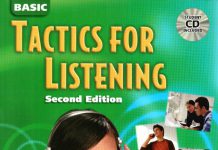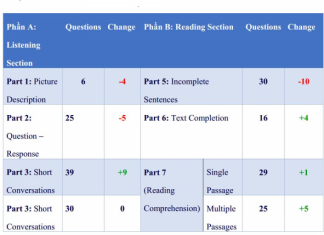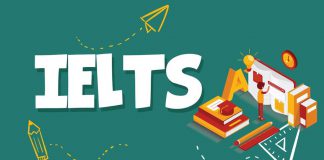Khi mô tả người trong phần thi Speaking, nhiều đề tài về tả thầy, cô hoặc ái đó bạn ngưỡng mộ, bạn cũng thể tả thầy, cô giáo mà bạn quý mến. Đây cũng thuộc dạng tả người. Và để describe thầy, cô một cách chi tiết, sinh động hơn, hôm nay ENG4 sẽ giới thiệu cho bạn một số cụm từ cũng như idiom để áp dụng vào bài thi nhé.
Vocabulary chủ đề Talk about your favorite teacher

Idioms
| Idioms | Example |
| teacher’s pet: To be the favourite pupil of the teacher. | She always has the right answer. She’s a real teacher’s pet. |
| teach an old dog new tricks: try to teach someone a skill but they can’t learn it or they refuse to learn it | He could never learn how to use the Internet. Just shows you can’t teach an old dog new tricks. |
| teach your grandmother to suck eggs: give advice to someone about a subject that they already know more about than you | He tried to tell me how to drive and I told him not to try and teach your grandmother to suck eggs. I’ve been driving for years. |
| teach someone a lesson: do something to someone, usually to punish them. | I hit him hard on the nose. That taught him a lesson |
Common Speaking Questions
Part 1: Frequent questions and answers
- What’s your opinion of teachers?
- Do you think it’s important to like your teachers?
- Did any teachers in your high school have a big influence on you?
- Were your high school teachers very strict?
- What sort of personality do teachers need to have?
- Who was your favorite teacher?
Past 2: Describe a teacher who has influenced you in your education.

You should say and explain why this person influenced you so much.
Possible Answer:
I consider myself lucky to get several very good teachers throughout my academic years. Among them, I’d like to talk about Mr Smith who was an extraordinary teacher, a really good mentor and who has a great influence in my education.
I met Mr Smith when I was in class 4 and he was our math teacher. Initially, we thought that he would be a moody teacher and we would have to be very polite in front of him. This impression came mostly because of his serious face and tidy dress-up. But soon we found that he is a very friendly person and teaches us very well. He never made things complicated and tried over and over again to explain something to us. He had a unique way of teaching.
Seems like he would start an interesting story and later we would find that he would relate the math to the story. Thus everything we learned from him was interesting and that’s why we remember most of the theory and techniques of math he taught us.
I’d say he has a great influence in my education because he made a very strong foundation on Mathematics. Later on, I studied Science and Mathematics was the most important subject. I have always been good at math and that’ mainly because of Mr Smith who had a major role in making the subject interesting to me. Before I learned math from Mr Smith, my impression on math was not good and I considered mathematics to be a very difficult and uninteresting subject. But his teaching and influences changed my way of thinking about math and later on math became my one the most favourite subject.
Part 3: Details Discussion
1. How has education changed in your country in the last 10 years?
The truth is that ten years ago the educational system wasn’t the same as it is now and many aspects have changes in our education system. In the past years, teachers used conventional methods to transfer information and knowledge to their students and the only means they utilised was blackboards.
Furthermore, as far as I’m concerned, schoolmasters paid more attention to their student’s weaknesses, problems and needs and the bonds between them were stronger than nowadays. Moving to the present, the existing ties between teachers and children have become more impersonal and unfortunately many teachers willingly keep a distance from students in the classroom. In addition, technological advances play a vital role in teaching and the methods used before are now obsolete.
To conclude, in my opinion, I prefer the educational system as it was 10 years ago than it is now because this isn’t only the internet that makes someone literate, but teachers and strong bonding between a teacher and a student do.
2. What changes do you foresee in the next 50 years?
It seems to me that in the forthcoming future the changes will be tremendous. First of all, it won’t be necessary for teachers to be present in the classroom as everything is going to be accomplished by the usage of technology. For example, students will become knowledgeable about different matters from the comfort of their home and they will correspond with their tutors rather than having personal relationships. Of course, it still happens these days to a certain extent, but in the next 50 years, I believe that this will be the way of teaching exclusively.
Going further, I think that apart from some basic and necessary subjects such as literature and mathematics, all of the other will be optional and each child will have the opportunity to choose the subject they want to be taught even when at primary school. From my point of view, I cannot say for sure if this is the appropriate course of action, but one thing is clear; if this happens the disadvantages will be inevitable.
3. How do the expectations of today’s school leavers compare with those of the previous generation?
When someone completed school in the past, they just hoped to find a job in order to earn a salary and cover their living expenses. Many, in the past, did not even look for jobs and continued their family business. They didn’t have as high expectations as present school leavers have these days.
In many cases, nowadays school-leavers don’t have realistic expectations and they expect a high position with high income, even without professional experience. Furthermore, these days knowledge isn’t the only element required for a good job as skills, experience, passion about work, learning, discipline and adaptability to name but a few, are prerequisites in order for someone to enter the labour market. That, however, was not the case in the past.
4. What role do you think extracurricular activities play in education?
It is commonly believed that extracurricular activities play an important role in education and have many benefits both in personal and professional life. I quite agree with that as those activities enhance someone’s capability and improve the way of thinking. First of all, children with extracurricular activities learn how to collaborate and co-exist with other peers and learn about soft skills and values.
In addition, a great opportunity is provided to them to interrelate with others and develop and evolve their interpersonal skills. Hence, these types of activities can create a feeling of contribution, as children are involved in different things and this will lead them to boost their self-esteem. Lastly, all these advantages will help children to build a well-rounded personality and an exceptional character and will benefit the school and teachers by having well-mannered and conscious students.



























